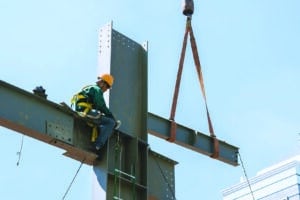
State legislators are considering changes to a law that sets limits on the window during which lawsuits can be filed for defects in developments.
Defense attorneys appreciate statutes of limitations, but truly love statutes of repose. The differences between such statutes seem arcane and technical to most people, but to attorneys the differences are huge.
Statutes of limitations and statutes of repose both serve similar purposes; namely, to protect potential defendants from having to answer lawsuits filed many years after their alleged wrongdoing. As years pass between the dates when defendants’ misconduct occurs and when plaintiffs file their lawsuits, it becomes harder for defendants to gather exculpatory evidence and witnesses.
But statutes of limitations can be tolled (that is, suspended) for various reasons, such as when plaintiffs are unable to realize that they have been injured or to determine who might be responsible for their injuries. In contrast, statutes of repose cannot be tolled for any reason. They impose absolute time limits on when plaintiffs can sue potential defendants. Statutes of repose bar plaintiffs’ claims after the statutory period expires, even when plaintiffs’ injuries do not occur or are not discovered within that limited timeframe.
A noteworthy Massachusetts statute of repose requires that lawsuits arising from construction or design defects in buildings and improvements must be commenced within six years after the buildings and improvements are completed. The time limit applies even if the defects were undiscoverable during the six-year period. This statute of repose works well for developers, contractors and architects, but not so much for owners of residential condominium units. A homeowners’ association (HOA) learned this last month in D’Allessandro v. Lennar Hingham Holdings LLC.
Trouble at Hewitts Landing
Hewitts Landing Condominium consists of 150 residential units in 28 buildings, developed in 24 phases between 2008 and 2015. In 2017, the condominium’s HOA filed suit against the developer in Superior Court, alleging design and construction defects in the project’s decks, roofing, exterior walls and irrigation system.
The developer removed the case to federal court, then argued that the Massachusetts statute of repose barred the suit for defects in six buildings that were completed more than six years before the HOA’s suit was filed in 2017. The developer argued that the statute’s six-year time limit should begin to run separately for each building upon completion, so that the HOA’s suit would be dismissed as to those six buildings.
The federal court rejected the developer’s argument. It ruled that all phases of the condominium should be treated as a single improvement for purposes of the statute of repose, and the six-year period for all phases did not begin to run until 2015, when the last building was completed. However, the federal court recognized that its ruling required an interpretation of Massachusetts state law, and there was no controlling Massachusetts Supreme Judicial Court precedent on this issue. The federal court certified a question to the SJC on whether the six-year period begins to run multiple times upon completion of each building, or only once upon completion of the last building.
SJC Calls on Legislature
The SJC answered this question in favor of the developer, stating that “where a condominium development is comprised of multiple buildings, . . . each building constitutes a discrete ‘improvement’” for purposes of the statute of repose, and “the opening of each individual building to its intended use, or the substantial completion of the individual building and the taking of possession for occupancy by the owner or owners, triggers the statute of repose.” As a result of the SJC’s ruling, the HOA is barred from maintaining its lawsuit on defects in the six buildings completed more than six years before it filed suit in 2017.

Christopher Vaccaro
The SJC recognized that its decision imposes difficulties on unit owners when developers retain control of HOA’s for years after completing the first buildings of phased projects. The SJC noted that HOAs have the exclusive right to sue for defects to common areas, and developers who control HOAs are unlikely to sue themselves. However, the SJC recommended that this concern be addressed by the Massachusetts state legislature, not the courts.
As it turns out, the state legislature is now considering a bill amending the statute of repose, which would postpone the start of the six-year statutory period at least until both the last phase of a condominium is complete or phasing rights expire, and control of the HOA transfers from the developer to the unit owners. The fate of this bill is uncertain, but the bill is expected to get much attention from advocacy groups representing HOAs and developers.
Christopher R. Vaccaro, Esq. is a partner at Dalton & Finegold, L.L.P. in Andover. His email address is cvaccaro@dfllp.com.




 |
| 
